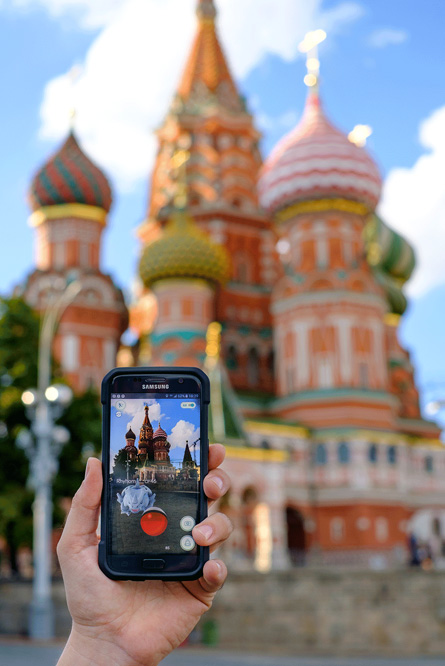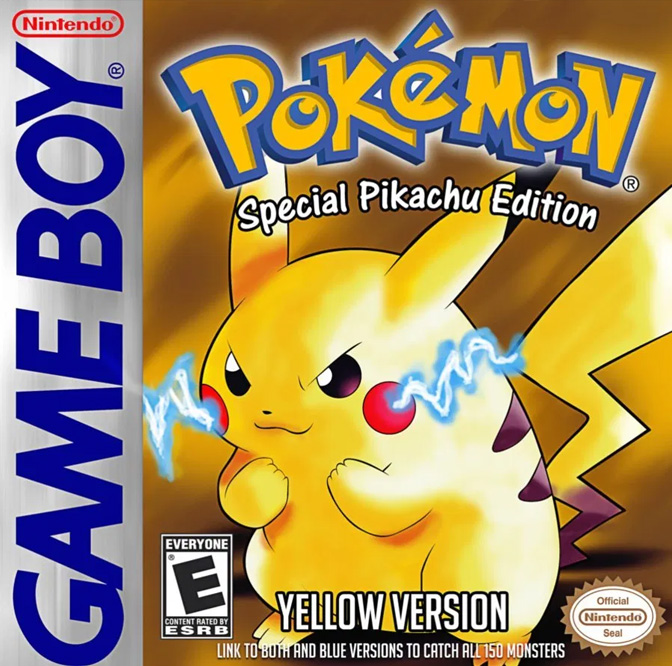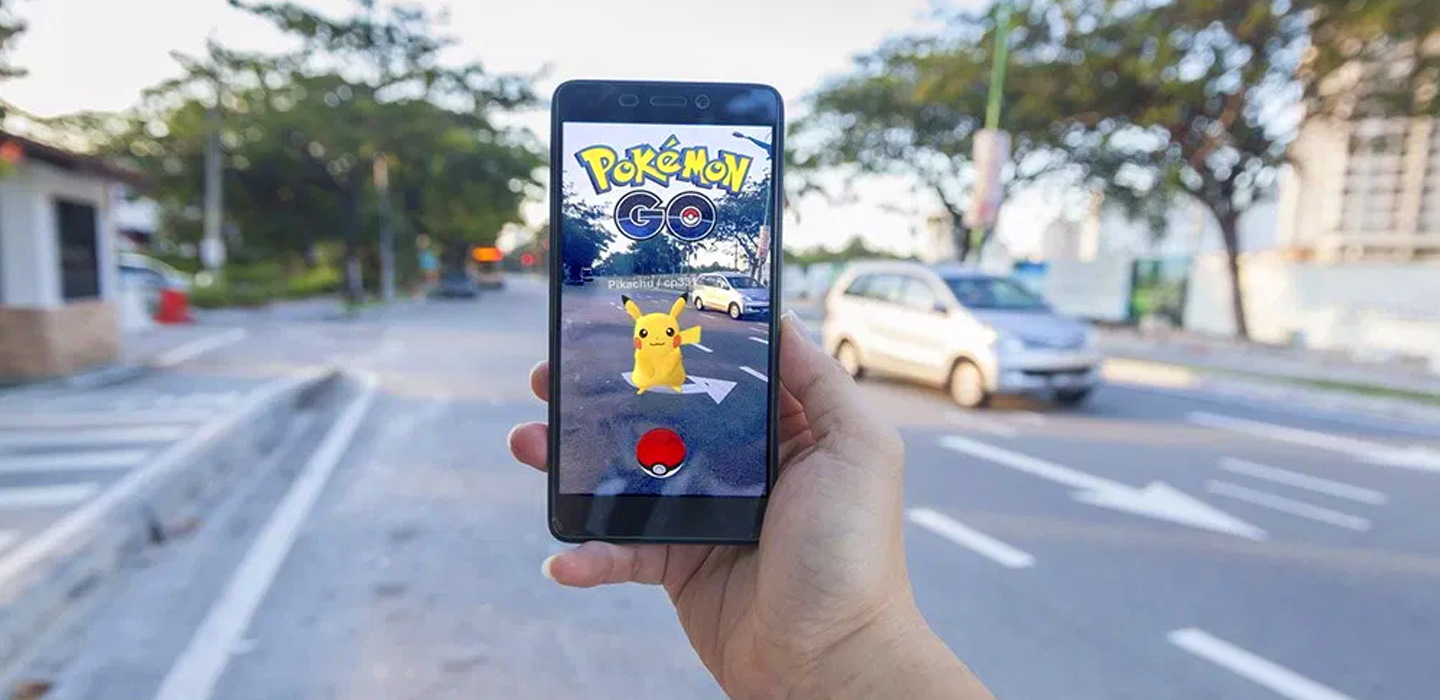Pokémon Go, the latest incarnation of the Pokémon franchise, has become an overnight blockbuster in the mobile gaming world. Since its launch on July 6, the app has rocketed to the top of the download charts, hooking millions of players around the world and breaking records even in markets where it has yet to officially launch.
In mid-July, less than a week after its debut in the US, Pokémon Go was rated the most active mobile game ever – more popular even than Candy Crush.
As comebacks go, the excitement surrounding the return of Pokémon could be, literally, a game changer. Reviewers and players have praised the new app’s innovative approach, using augmented reality and immersive, physically active game play.
Once a giant of the gaming world, Nintendo had until recently been written off by many for failing to keep pace with a changing market.
The game’s huge popularity has also drawn a spike in investor interest in Nintendo, the Japanese games maker that launched the first Pokémon game exactly 20 years ago. A week after Pokémon Go’s release, Nintendo’s shares had soared, more than doubling the firm’s market value to US$42.1bn.
That enthusiasm was somewhat punctured however when Nintendo released an earnings statement saying that the game would have a “limited” impact on profits. After briefly soaring, the company’s stock plunged 18 percent in a day – though leaving it still well above levels before the Pokémon Go launch.

The game has spawned armies of fans around the world
While the Nintendo and Pokemon brands are closely linked in the minds of gamers, the company itself did not actually produce Pokémon Go. Niantic Labs, a San Francisco-based Google spin-off, developed the app in partnership with the Pokémon Company, of which Nintendo is one of three partners. How much profit Nintendo will actually receive remains unclear, but investors are clearly expecting that Pokemon Go signals a revival of the firm’s fortunes.
Once a giant of the gaming world, Nintendo had until recently been written off by many for failing to keep pace with a changing market. It had stubbornly resisted entering the fast-growing mobile games market, while the last few years have seen its console sales languishing in a poor third place behind PlayStation and Xbox.
It was very different 20 years ago, when Nintendo commanded around 90 per cent of the gaming market. A series of innovations had made the former playing card manufacturer an industry leader in home and handheld electronic gaming.
Legendary titles
Nintendo’s rise began in the mid-1980s with the release of the ground-breaking Nintendo Entertainment System (NES) home gaming console. That was the precursor to a string of legendary gaming titles and characters from the Nintendo stable – among them Excitebike, Super Mario Brothers, Donkey Kong and Legend of Zelda.
In the world of technology it is easy to be out-innovated by well-resourced competitors
A decade later it launched the Gameboy, a revolutionary handheld console which became the platform for the first Pokémon games. It seemed Nintendo had the golden touch; its name held up as the undisputed champion of the gaming industry.
However, dominant positions like this rarely endure – especially in an industry so fundamentally tied to technology.
Nintendo’s success came from innovation. But in the world of technology it is easy to be out-innovated by well-resourced competitors – in this case first Sony, and then Microsoft. This competition steadily eroded Nintendo’s grip on the gaming industry.
Nintendo may have long since been knocked from its lofty perch, but a legacy of its former dominance is to deal it a formidable competitive resource: a stable of characters that have acquired almost legendary status in the world of gaming. From Super Mario to the many faces of Pokémon – no other company has such a potentially valuable catalogue of intellectual property. With innovation no longer driving success for Nintendo, it needs to put these characters to work.

The Pokémon franchise first appeared two decades ago
First step
Much as Disney seduces us into buying its clothes, books, music, or vacations in its hotels, theme parks and cruise ships by addicting us to the characters in its animated films, Nintendo’s iconic games built unbreakable connections to its characters.
Pokémon Go marks an interesting first step in realising the potential value Nintendo has on its books. Yet remember that it was not Nintendo who developed the game.
The new game reincarnates a dormant set of characters – one that, apparently, still has widespread appeal. But for Nintendo, Pokémon Go is still only a first step and there is no evidence yet that it gives the firm significant long-term sustainable advantage.
The question is where it goes next. For years Nintendo ignored the smartphone revolution and resisted venturing into mobile gaming, focusing instead on incremental innovation in its own platforms and internal development of games. Now, it seems, it may have seen the light. The company has said it plans to release a further four mobile games by March next year.
Brand recognition
The success of Pokémon Go is a promising sign that Nintendo still commands the brand recognition and IP to drive games of huge appeal. But competition in the mobile gaming space is intense. Consumers are too disloyal, fickle and unwilling to shell out cash to pay for them. And competitors are very creative.
Against this landscape blockbuster games of today quickly become relegated to the forgotten has-beens of tomorrow. Remember Angry Birds?
For too long Nintendo’s unique stable of characters has been as misused as a fortune of cash hidden inside a mattress. It now needs alternative vehicles to unlock the value found in its intellectual property.
If we truly want to see value created in Nintendo, then we need to see it ally or be acquired by a company with the complementary resources needed to keep its stable of characters as busy as Mickey, Donald, Elsa, Mulan and Cinderella have been for Disney.
Until then, any value created for Nintendo is as much an illusion as those poor Pokémons being chased by millions on the screens of their smartphones.






